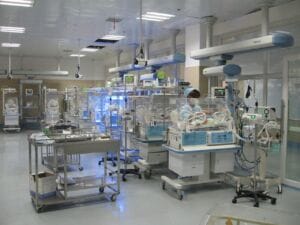Banner Health and the Translational Genomics Research Institute (TGen) formed a partnership to find a quicker and more accurate way of diagnosing concussions.
Specifically, Banner and TGen will obtain bio-samples from as many as 100 volunteer patients in an effort to find a biomarker — a genetic signature — that can definitively indicate when a patient has suffered a concussion, and when they have recovered.
Currently, there is no test or imaging system that can objectively indicate when a patient has sustained a concussion.
The RNA from patients’ bio-samples — blood, urine and saliva — will be analyzed at the molecular level using TGen’s next-generation sequencing and super-computing, which spells-out the billions of chemical letters in each patient’s genome.
“For the first time, we will be able to access whether or not there is an accumulation of head trauma biomarkers from concussive and repeated sub-concussive impacts,” said Dr. Kendall Van Keuren-Jensen, an associate professor in TGen’s Neurogenomics Division. “This information would be extremely beneficial to physicians as they treat and monitor their patients.”
The study will focus primarily on patients, age 15 and older, that sustain sports-related concussions. Their bio-samples will be used to identify molecular changes associated with clinically diagnosed concussions.
“Little is known about how to interpret the severity of head injuries or the potential for long-term consequences that result from such injuries,” said Dr. Steven Erickson, medical director of the Banner Concussion Center, and the study’s principle investigator.
“Currently, there is no definitive test to quickly and accurately diagnose a concussion, or to determine when the brain has fully recovered,” said Dr. Erickson, who also is the co-chief of the Banner-University Sports Medicine Center, and the program director of the Primary Care Sports Medicine Fellowship at the University of Arizona College of Medicine-Phoenix.
TGen also is conducting a related brain-injury study in association with the Barrow Neurological Institute (BNI) and Arizona State University.
Findings from this new TGen-Banner study will be compared to the three-year TGen-BNI study, in which bio-samples from the student athletes on the ASU Sun Devils football team were correlated with data from helmet sensors that tracked the number, direction and intensity of head impacts recorded by a wireless sideline computer during games and practices.
That study, led by Drs. Van Keuren-Jensen and Matt Huentelman, a Professor in TGen’s Neurogenomics Division, was sponsored in part by Riddell, the football industry’s leader in helmet technology and innovation.
In TGen’s new study with Banner, bio-samples from concussion patients will be collected weekly and assessed for potential genetic biomarkers. That information will be correlated with changes in the patients’ vision, balance, sleep and concentration.
A quick and simple blood test using genetic biomarkers would let physicians — especially emergency room and primary care doctors — know when patients have suffered a significant brain injury, and when they have recovered. It also could help identify those at risk for long-term complications, help develop new therapies to address injuries, and help assess the damage from repeated mild trauma.
Data collected and assessed from all participants in the study would be de-identified, or coded, to ensure the privacy and anonymity of the patients.



